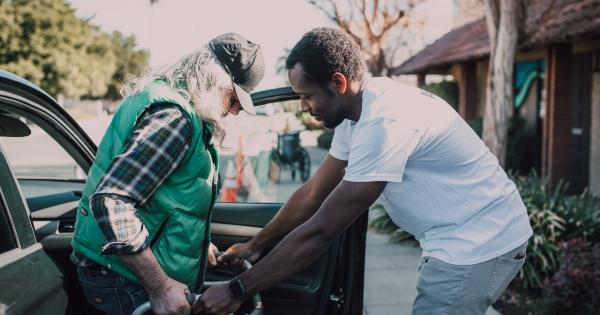Getting a new puppy is always an exciting experience, but it can also be overwhelming and challenging. One of the most important things to teach your puppy is how to interact and play nicely with other dogs and animals.
Socialization is key to raising a happy and well-behaved puppy, and it starts with teaching them how to play nice with others.
Why is it important to teach your puppy to play nice with others?
Teaching your puppy to play nicely with others is important for several reasons. Firstly, it helps them avoid developing aggressive behaviors towards other dogs or animals.
Puppies who are not socialized properly may become overly aggressive or fearful towards other dogs, which can lead to dangerous situations.
Secondly, socialization helps puppies develop healthy communication skills with other dogs. Learning how to read and respond to body language in other dogs is an essential part of communicating with other animals.
Puppies who do not learn these skills may struggle to communicate with other dogs and may resort to more aggressive or submissive behaviors.
Finally, playing with others is an important part of a puppy’s physical and mental development.
Puppies who are not given opportunities to socialize and play with other dogs may become bored and anxious, which can lead to destructive behaviors in the home.
When should you start teaching your puppy to play nice with others?
It’s important to start socializing your puppy as early as possible. Puppies go through a socialization period between the ages of 8 and 16 weeks, during which time they are most receptive to learning about the world around them.
During this time, it’s important to expose your puppy to a wide variety of different people, animals, and environments.
However, socialization should continue throughout your puppy’s life.
Even after the initial socialization period, it’s important to continue exposing your puppy to different experiences and training them how to interact with different animals and people.
How can you teach your puppy to play nice with others?
Teaching your puppy to play nice with others requires consistency and patience. Here are some tips to help you get started:.
1. Start with positive reinforcement training
Positive reinforcement training is a method of training that uses rewards to encourage good behavior. Use treats, praise, and toys to reward your puppy for good behavior, such as sitting calmly near other dogs or approaching them in a friendly way.
Be sure to avoid punishing your puppy for bad behavior, as this can lead to stress and anxiety.
2. Introduce your puppy to other dogs gradually
Do not force your puppy to interact with other dogs. Instead, introduce them gradually to new animals in a controlled environment. Start by introducing your puppy to calm, well-behaved dogs that are known to be friendly with other puppies.
Gradually increase the number of dogs your puppy interacts with, but always supervise their interactions and be ready to separate them if necessary.
3. Use positive body language
Using positive body language can help your puppy feel more relaxed and comfortable around other dogs. Avoid tense body language, such as pulling on your puppy’s leash or speaking in a harsh tone.
Instead, use a calm voice and relaxed body language to signal to your puppy that everything is okay.
4. Teach your puppy basic obedience commands
Teaching your puppy basic obedience commands, such as “sit” and “stay,” can help them focus on you and stay calm in new environments.
These commands can also help you redirect your puppy’s attention if they become too excited or nervous around other dogs.
5. Reward calm behavior around other dogs
When your puppy exhibits calm behavior around other dogs, be sure to reward them with treats and praise. This will help reinforce the desired behavior and encourage your puppy to continue to act calmly around other animals.
6. Socialize your puppy regularly
Regular socialization is key to teaching your puppy to play nice with others. Make sure to expose your puppy to a wide variety of different animals and people, and continue to work on their social skills throughout their life.
Conclusion
Teaching your puppy to play nice with others is an essential part of socializing and training your new puppy.
By using positive reinforcement training, introducing your puppy to other dogs gradually, and using positive body language, you can help your puppy develop healthy social skills and avoid developing aggressive or fearful behaviors towards other animals.























